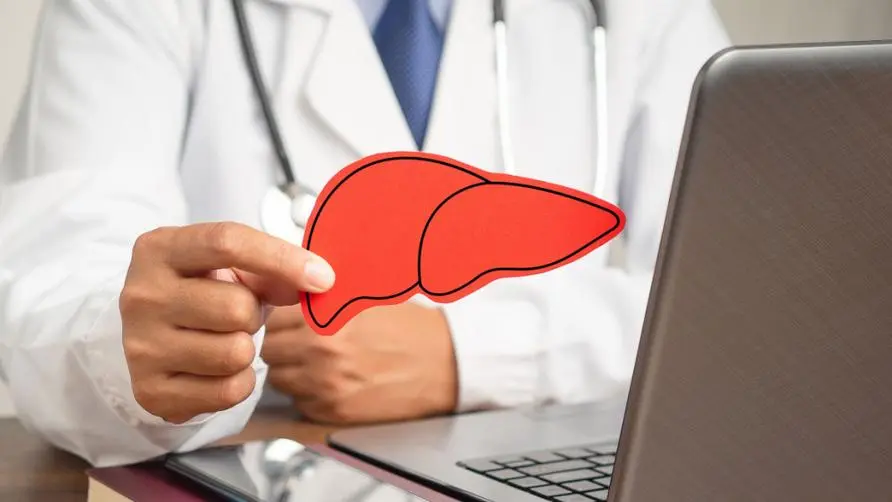Just because you eat less doesn't mean you will lose weight! Nutritionist reveals: 6 things that make body fat "silently increase"

Even if your daily diet is small, you may still face the dilemma of “excessive body fat”? Manman Nutritionist pointed out in a social post that there was a 50-year-old middle-aged female patient in the clinic recently. She usually has a low total body weight, but her body fat is as high as 40%. After further consultation, it was found that although the patient only ate two meals a day and had a very small amount of food, his diet of biscuits and sugary hand-shaken drinks every day should be the main reason for his high body fat.
Recommended reading: What is the culprit behind body fat loss? Nutritionist names “landmine food” at night markets and warns: It’s equivalent to drinking oil directly
Just because you eat less doesn’t mean you’ll lose weight! 6 things that make body fat “silently increase”
Manman nutritionists explain that if the body fat of men and women is greater than or equal to 25% and 30% respectively, it is considered to exceed the normal standard and needs to be improved through a strict diet plan. In addition to an unbalanced diet, the following bad habits are also potential factors causing excessive body fat:
Taking in too many calories. Excess calories in the diet will be converted into fat accumulation, while increasing “weight” and “body fat”.
Too much refined starch. Excessive intake of sugary drinks, cookies, sweets, and thickened foods such as rice and noodles can easily cause blood sugar to spike and stimulate fat accumulation.
Love to eat late night snacks. Lying in bed immediately after “eating full” means less energy consumption and easy to increase fat accumulation. In addition, most people’s late-night snack choices are often high-calorie or heavy-flavored foods, such as salty crispy chicken, chicken steak, barbecue, instant noodles, and potato chips, and their caloric intake can easily exceed the standard.
Drinking too much alcohol. 1 gram of alcohol is equivalent to approximately 7 calories. In addition to increasing caloric intake, drinking alcohol can also increase your appetite, causing you to eat too much food without even realizing it, resulting in excessive caloric intake.
Eating too much fruit. Many people think that eating fruits means health. Fruits can indeed provide sugar nutrition, but excessive intake can easily increase “triglycerides” in the blood and increase fat accumulation.
Love processed foods. Red meat and its processed products, such as hamburgers, hot dogs, bacon, floss, and sausages, contain higher levels of “saturated fat”, which are relatively more stable than “unsaturated fat” and can easily enter fat cells and accumulate in the body.
Recommended reading: Causes and symptoms of fatty liver? Are sugary drinks a landmine? Is excessive fatty liver disease likely to lead to inflammation and cancer?
Reduce body fat by “eating this way” without worrying about getting fat! If you are craving for food before going to bed, it is recommended to use “3 foods” as a late night snack
Manman nutritionists said that the first priority to adjust your diet to reduce body fat is to increase your “vegetable” intake. Vegetables should account for at least half of a meal at lunch and dinner. Vegetables are foods with low calorie density and are rich in dietary fiber, which can increase satiety. Increasing vegetable intake in the diet can also help control calories.
In addition, it is recommended that those who usually drink sugary drinks and consume excessive amounts of refined starch should change their diet to sugar-free drinks and unrefined sugar foods such as sweet potatoes, corn, taro, etc., and reduce the consumption of gravy and foods with a lot of sauces. . If you can’t get rid of the habit of eating late-night snacks for a while, you can first change to healthier unflavored edamame, sugar-free soy milk, and boiled eggs, but it will be better if you don’t eat late-night snacks.
In terms of drinking, it is recommended to first reduce the amount of alcohol consumed to half of the current amount, and try to stay away from alcohol and gradually achieve the goal of quitting drinking. Although the intake of fruit is important, remember to eat only a fist-sized portion at a time and limit it to two times a day. Finally, processed red meat should be avoided in the diet. The staple food content can be changed to soy products, fish, seafood or white meat. It is recommended to eat enough high-quality protein every day, which can not only increase satiety, but also help fat metabolism and maintain muscle mass.
Manman nutritionists remind that if people currently have the problem of excessive body fat, in addition to improving the above-mentioned eating habits, exercise and normal sleep schedule will also be helpful in reducing body fat. However, if body fat remains high after improving your diet, it is recommended to consult a nutritionist or metabolic doctor to improve the high body fat problem through professional treatment and medical advice.
Recommended reading: When are probiotics useful? Category 7 strains vary greatly! Pharmacist reveals the truth about the effects and ingredients of probiotics
Further reading:





